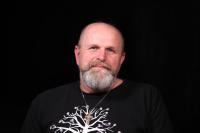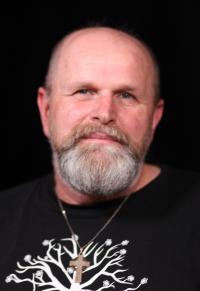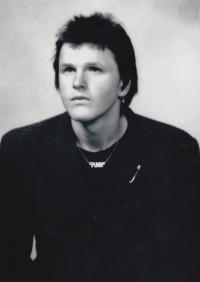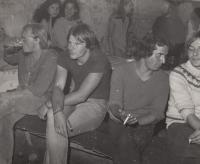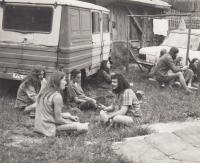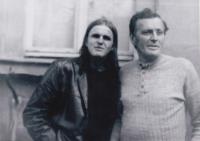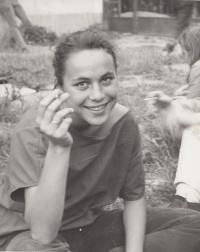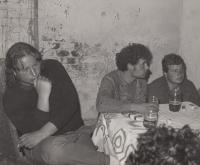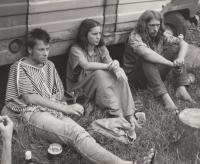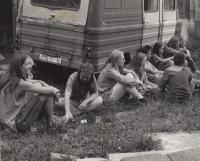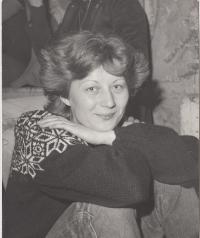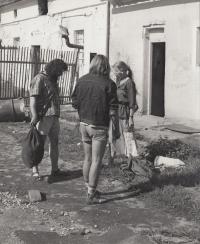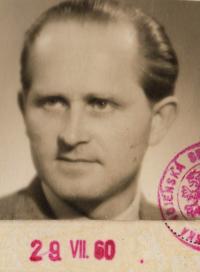Rather the uranium mines than military prison

Download image
Petr Kahovec was born on 21 March 1962 in Pilsen to Václav and Lydie Kahovec; he had a younger sister, Leona. The family comes from Stříbro, where his grandparents’ families settled after the war. His father’s parents lived in a mixed Czech-Austrian marriage and came from the Sudeten town of Tachov; his grandfather was drafted into the Wehrmacht during World War II. He avoided post-war deportation thanks to his good reputation. Her mother’s parents were part of the Czech Evangelical minority living in Germany; they fled to Bohemia in the 1930s to escape Nazism. The witness grew up in a devout Christian family and had secret catechism lessons as a child. In the 1970s he attended a forestry school, wore long hair, and listened to punk and alternative music. In 1979-1981 he underwent compulsory military service in Jemnice na Moravě, where he got into trouble with his superiors and for sending letters critical of the regime; he was threatened with military prison. To avoid that, he agreed to sign a three-year contract for civilian work in uranium mines. In the mid-1980s he lived and worked with cattle together with his Chartist friend Jaroslav Ondrák at a farm in Lomnička, which acted as a hub for unofficial meetings and concerts. They were under State Security surveillance and were often interrogated. Petr Kahovec signed Charter 77 in the late 1980s. He worked on the Pilsen samizdat magazine Pevná hráz (Firm Dam), he attended festivals in Polans, where he became acquainted with the Solidarity movement, and he was strongly influenced by František Pitor. In November 1989 he was active in the Civic Forum and then worked in civic committees that conducted a purge of the police force. He briefly went into business after the revolution, before taking up a job as a driver. He married twice and has four children.
